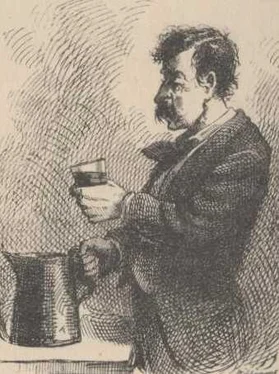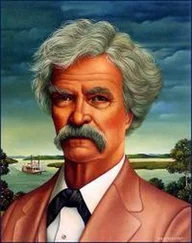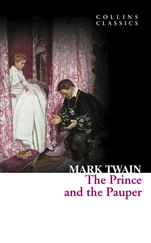Mark Twain - Sketches New and Old
Здесь есть возможность читать онлайн «Mark Twain - Sketches New and Old» весь текст электронной книги совершенно бесплатно (целиком полную версию без сокращений). В некоторых случаях можно слушать аудио, скачать через торрент в формате fb2 и присутствует краткое содержание. Год выпуска: 2004, Жанр: Классическая проза, Юмористическая проза, на английском языке. Описание произведения, (предисловие) а так же отзывы посетителей доступны на портале библиотеки ЛибКат.
- Название:Sketches New and Old
- Автор:
- Жанр:
- Год:2004
- ISBN:нет данных
- Рейтинг книги:5 / 5. Голосов: 1
-
Избранное:Добавить в избранное
- Отзывы:
-
Ваша оценка:
- 100
- 1
- 2
- 3
- 4
- 5
Sketches New and Old: краткое содержание, описание и аннотация
Предлагаем к чтению аннотацию, описание, краткое содержание или предисловие (зависит от того, что написал сам автор книги «Sketches New and Old»). Если вы не нашли необходимую информацию о книге — напишите в комментариях, мы постараемся отыскать её.
Sketches New and Old — читать онлайн бесплатно полную книгу (весь текст) целиком
Ниже представлен текст книги, разбитый по страницам. Система сохранения места последней прочитанной страницы, позволяет с удобством читать онлайн бесплатно книгу «Sketches New and Old», без необходимости каждый раз заново искать на чём Вы остановились. Поставьте закладку, и сможете в любой момент перейти на страницу, на которой закончили чтение.
Интервал:
Закладка:
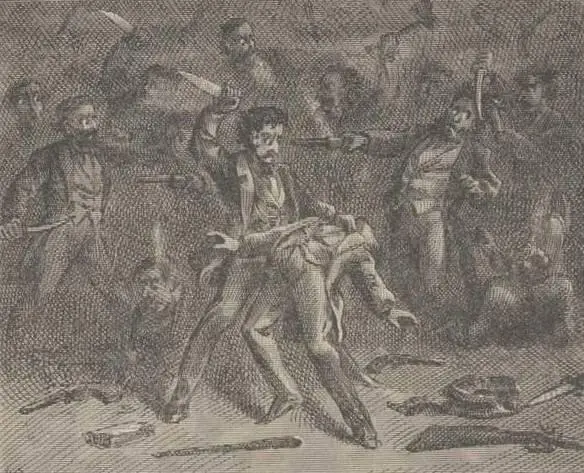
He said, "You'll like this place when you get used to it."
I said, "I'll have to get you to excuse me; I think maybe I might write to suit you after a while; as soon as I had had some practice and learned the language I am confident I could. But, to speak the plain truth, that sort of energy of expression has its inconveniences, and a man is liable to interruption.
"You see that yourself. Vigorous writing is calculated to elevate the public, no doubt, but then I do not like to attract so much attention as it calls forth. I can't write with comfort when I am interrupted so much as I have been to-day. I like this berth well enough, but I don't like to be left here to wait on the customers. The experiences are novel, I grant you, and entertaining, too, after a fashion, but they are not judiciously distributed. A gentleman shoots at you through the window and cripples me; a bombshell comes down the stove-pipe for your gratification and sends the stove door down my throat; a friend drops in to swap compliments with you, and freckles me with bullet-holes till my skin won't hold my principles; you go to dinner, and Jones comes with his cowhide, Gillespie throws me out of the window, Thompson tears all my clothes off, and an entire stranger takes my scalp with the easy freedom of an old acquaintance; and in less than five minutes all the blackguards in the country arrive in their war-paint, and proceed to scare the rest of me to death with their tomahawks. Take it altogether, I never had such a spirited time in all my life as I have had to-day. No; I like you, and I like your calm unruffled way of explaining things to the customers, but you see I am not used to it. The Southern heart is too impulsive; Southern hospitality is too lavish with the stranger. The paragraphs which I have written to-day, and into whose cold sentences your masterly hand has infused the fervent spirit of Tennesseean journalism, will wake up another nest of hornets. All that mob of editors will come—and they will come hungry, too, and want somebody for breakfast. I shall have to bid you adieu. I decline to be present at these festivities. I came South for my health, I will go back on the same errand, and suddenly. Tennesseean journalism is too stirring for me."
After which we parted with mutual regret, and I took apartments at the hospital.
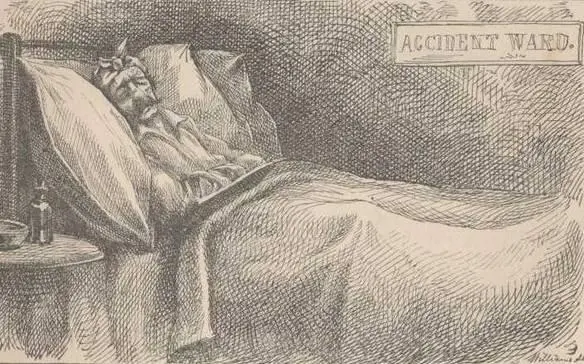
THE STORY OF THE BAD LITTLE BOY
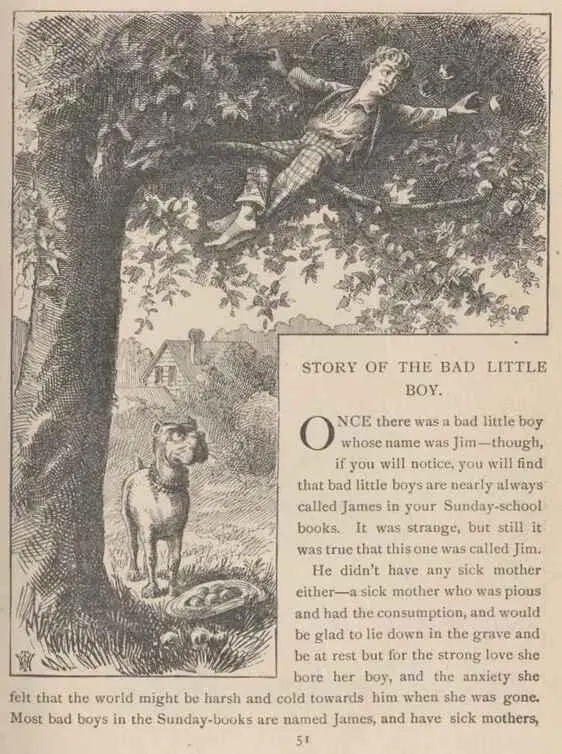
Once there was a bad little boy whose name was Jim—though, if you will notice, you will find that bad little boys are nearly always called James in your Sunday-school books. It was strange, but still it was true, that this one was called Jim.
He didn't have any sick mother, either—a sick mother who was pious and had the consumption, and would be glad to lie down in the grave and be at rest but for the strong love she bore her boy, and the anxiety she felt that the world might be harsh and cold toward him when she was gone. Most bad boys in the Sunday books are named James, and have sick mothers, who teach them to say, "Now, I lay me down," etc., and sing them to sleep with sweet, plaintive voices, and then kiss them good night, and kneel down by the bedside and weep. But it was different with this fellow. He was named Jim, and there wasn't anything the matter with his mother—no consumption, nor anything of that kind. She was rather stout than otherwise, and she was not pious; moreover, she was not anxious on Jim's account. She said if he were to break his neck it wouldn't be much loss. She always spanked Jim to sleep, and she never kissed him good night; on the contrary, she boxed his ears when she was ready to leave him.
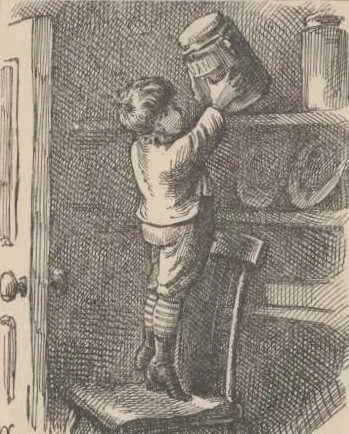
Once this little bad boy stole the key of the pantry, and slipped in there and helped himself to some jam, and filled up the vessel with tar, so that his mother would never know the difference; but all at once a terrible feeling didn't come over him, and something didn't seem to whisper to him, "Is it right to disobey my mother? Isn't it sinful to do this? Where do bad little boys go who gobble up their good kind mother's jam?" and then he didn't kneel down all alone and promise never to be wicked any more, and rise up with a light, happy heart, and go and tell his mother all about it, and beg her forgiveness, and be blessed by her with tears of pride and thankfulness in her eyes. No; that is the way with all other bad boys in the books; but it happened otherwise with this Jim, strangely enough. He ate that jam, and said it was bully, in his sinful, vulgar way; and he put in the tar, and said that was bully also, and laughed, and observed "that the old woman would get up and snort" when she found it out; and when she did find it out, he denied knowing anything about it, and she whipped him severely, and he did the crying himself. Everything about this boy was curious—everything turned out differently with him from the way it does to the bad Jameses in the books.
Once he climbed up in Farmer Acorn's apple tree to steal apples, and the limb didn't break, and he didn't fall and break his arm, and get torn by the farmer's great dog, and then languish on a sickbed for weeks, and repent and become good. Oh, no; he stole as many apples as he wanted and came down all right; and he was all ready for the dog, too, and knocked him endways with a brick when he came to tear him. It was very strange—nothing like it ever happened in those mild little books with marbled backs, and with pictures in them of men with swallow-tailed coats and bell-crowned hats, and pantaloons that are short in the legs, and women with the waists of their dresses under their arms, and no hoops on. Nothing like it in any of the Sunday-school books.
Once he stole the teacher's penknife, and, when he was afraid it would be found out and he would get whipped, he slipped it into George Wilson's cap—poor Widow Wilson's son, the moral boy, the good little boy of the village, who always obeyed his mother, and never told an untruth, and was fond of his lessons, and infatuated with Sunday-school. And when the knife dropped from the cap, and poor George hung his head and blushed, as if in conscious guilt, and the grieved teacher charged the theft upon him, and was just in the very act of bringing the switch down upon his trembling shoulders, a white-haired, improbable justice of the peace did not suddenly appear in their midst, and strike an attitude and say, "Spare this noble boy—there stands the cowering culprit! I was passing the school door at recess, and, unseen myself, I saw the theft committed!" And then Jim didn't get whaled, and the venerable justice didn't read the tearful school a homily, and take George by the hand and say such a boy deserved to be exalted, and then tell him to come and make his home with him, and sweep out the office, and make fires, and run errands, and chop wood, and study law, and help his wife do household labors, and have all the balance of the time to play, and get forty cents a month, and be happy. No; it would have happened that way in the books, but didn't happen that way to Jim. No meddling old clam of a justice dropped in to make trouble, and so the model boy George got thrashed, and Jim was glad of it because, you know, Jim hated moral boys. Jim said he was "down on them milksops." Such was the coarse language of this bad, neglected boy.
Читать дальшеИнтервал:
Закладка:
Похожие книги на «Sketches New and Old»
Представляем Вашему вниманию похожие книги на «Sketches New and Old» списком для выбора. Мы отобрали схожую по названию и смыслу литературу в надежде предоставить читателям больше вариантов отыскать новые, интересные, ещё непрочитанные произведения.
Обсуждение, отзывы о книге «Sketches New and Old» и просто собственные мнения читателей. Оставьте ваши комментарии, напишите, что Вы думаете о произведении, его смысле или главных героях. Укажите что конкретно понравилось, а что нет, и почему Вы так считаете.
